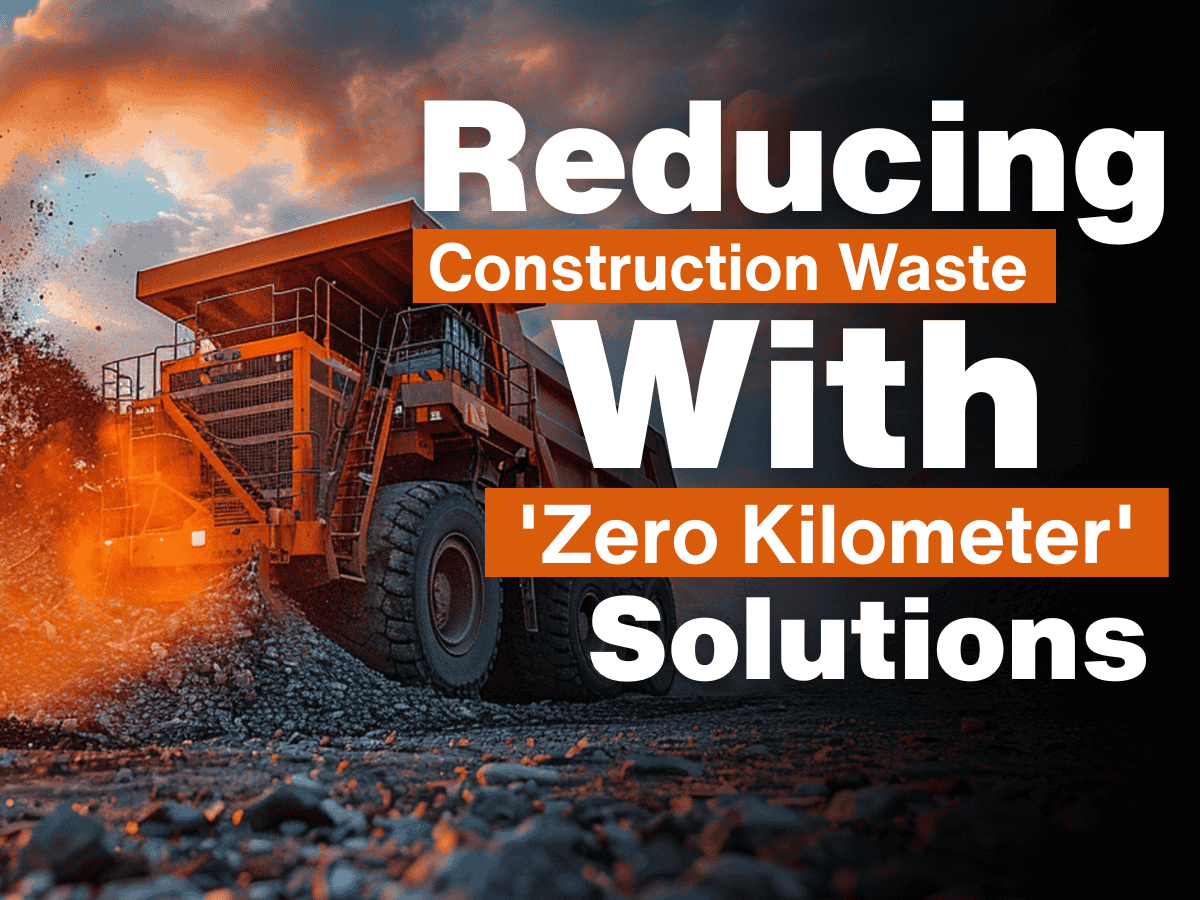ceat-speciality:blogs-tags/all,ceat-speciality:blogs-tags/construction-&-industrial
How to Extend the Life of Construction Equipment Tyres?
Tue, 5 Aug 2025 | PRODUCTS
Construction equipment tyres are a significant investment, and extending their lifespan can save you both time and money. From excavators to loaders, keeping construction tyres in optimal condition is essential for safe, cost-effective operations. In this blog, we explore actionable strategies to help you get the most out of your tyres while maintaining peak performance.
Why Tyre Maintenance Matters?
Proper tyre maintenance is not just good practice. It’s foundational to operational efficiency. Here's why:
- Cost Savings: Well-maintained tyres wear evenly and last longer, reducing replacement costs.
- Safety: Properly serviced tyres improve vehicle stability, traction, and braking—minimising the risk of workplace accidents.
- Efficiency: Healthy tyres enhance fuel efficiency, reduce drag, and deliver consistent performance on varied terrains.
Tips to Extend Tyre Life
1. Regular Inspections
Routine visual checks can detect early signs of wear or damage:
- Look for cracks, bulges, or exposed cords.
- Monitor tread depth to ensure compliance with safety standards.
- Identify uneven wear patterns that may signal alignment or suspension issues.
2. Maintain Proper Inflation
Incorrect pressure is one of the leading causes of premature tyre failure:
- Under-inflation increases rolling resistance, fuel consumption, and heat buildup.
- Over-inflation reduces contact area, leading to poor traction and a bumpier ride.
- Always use a calibrated gauge to check tyre pressure before shifts or heavy-duty
tasks.
3. Rotate Tyres
Tyre rotation ensures uniform wear across all tyres:
- Front and rear tyres may wear at different rates depending on load and usage.
- Follow equipment manufacturer guidelines for ideal rotation intervals.
4. Align and Balance
Precision matters when dealing with heavy construction machinery:
- Misalignment leads to uneven wear and steering issues.
- Tyre balancing minimises vibration and extends overall tyre life.
5. Avoid Overloading
Excess weight can push tyres beyond their structural limits:
- Stick to load ratings recommended by the tyre manufacturer.
- Factor in attachments or variable loads that may add unexpected stress.
6. Choose the Right Tyres
Tyres should match the specific demands of your equipment and jobsite:
- Consider terrain type (muddy, rocky, paved), weather conditions, and payload.
- Choose a tread pattern that complements the working environment for better
traction and durability.
7. Store Tyres Properly
Proper off-season storage prevents environmental damage:
- Keep tyres upright in a cool, dry, ventilated area.
- Avoid direct sunlight, oil exposure, or stacking heavy objects on them.
Common Mistakes to Avoid
- Ignoring minor cuts or abrasions that can evolve into major failures.
- Using mismatched tyres in terms of size, tread, or brand.
- Failing to clean tyres post-operation, especially after working in corrosive environments.
Why Choose CEAT Specialty?
When it comes to durability and performance, CEAT Specialty's premium tyres are engineered for the demands of modern construction machinery. With advanced tread design and robust compounds, we offer:
- Superior traction across challenging terrains
- Enhanced load-handling capacity
- Longer service life even under rugged usage
Whether you're operating backhoes, graders, or forklifts, CEAT Specialty tyres are purpose-built to deliver reliable performance where it matters most.
Conclusion
Tyre care isn’t just a maintenance chore. It’s a proactive strategy that boosts safety, reduces downtime, and safeguards your investment. By following these best practices and choosing the right products like CEAT Specialty, you can keep your construction equipment rolling smoothly on any jobsite.
For expert guidance and high-performance tyres tailored to your needs, visit CEAT Specialty UK.
FAQs
How often should I check construction tyre pressure?
It’s recommended to check construction tyre pressure at least once a week or before any long operation.
What is the ideal tread depth for construction tyres?
The ideal tread depth varies by tyre type, but generally, a minimum of 1.6mm is required for safety.
Can I repair a damaged construction tyre?
Minor damages like small punctures can often be repaired, but consult a professional for advice.







.png)














